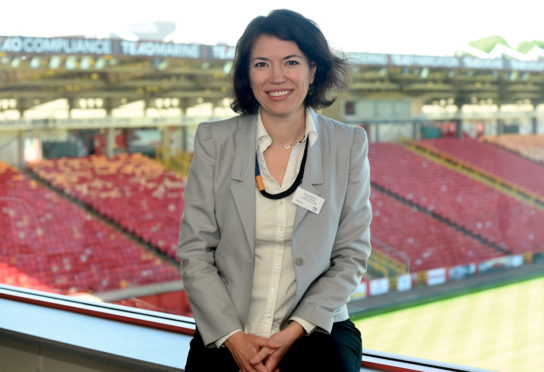Experts on eating disorders met in Aberdeen yesterday to discuss how self-image, social media and identity can influence conditions such as anorexia.
The Scottish Eating Disorder Conference invited medical practitioners, therapists and others from across the country’s care system to Pittodrie Stadium, where they heard presentations from a variety of speakers.
Among those addressing the audience were Mental Health Minister Clare Haughey and Dr Jane Morris, a consultant psychiatrist at Royal Cornhill Hospital.
Professionals from all manner of backgrounds discussed some of the biggest issues faced by those with eating disorders today, including unrealistic body types shown on television and online, pressures to lose weight in advertising and more.
One of the key speakers was Petya Eckler, a senior lecturer from Strathclyde University who focuses her research on how all kinds of media can influence an individual’s attitudes towards their own body.
She highlighted a number of major studies in the field, including one undertaken in the 90s in Fiji, which compared the thoughts of Fijians on their body weight – before and after they had access to idealised body types and lifestyles shown on television.
Ms Eckler also presented some of her own research into the effects on mental and physical health posed by social media giants such as Instagram and Facebook.
She said: “All patients are media consumers – we probably spend more time consuming media on a day to day basis than any other activity, even when we’re working, so it’s just so omnipresent that you just can’t ignore it.”
Dr Jane Morris, clinical lead at NHS Grampian, added: “Whilst we all know that certain social media behaviour goes on, overall there is a bit of a generation gap between providers of care, and in particular, younger eating disorder sufferers.
“For example, if you’re working in something like drug abuse, you would need to understand the current drugs on the street, what people call them, and what do they use them for, otherwise you have no credibility with your patients, and rightly so, because you can’t understand what it’s like for them.
“So Petya’s work is very much giving us a head start.
“We now have a way in to discuss the influence that social media tends to have overall, so that we can then discuss that in a tailor-made way with each individual patient.”
